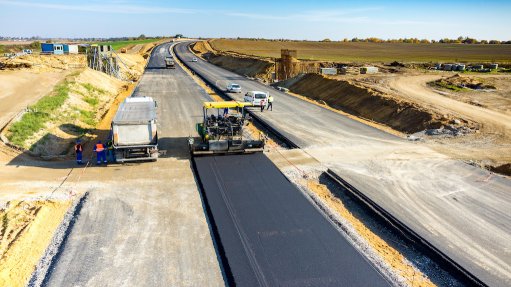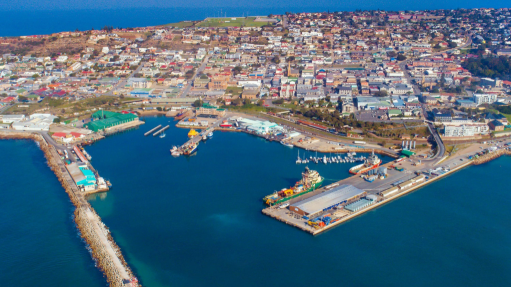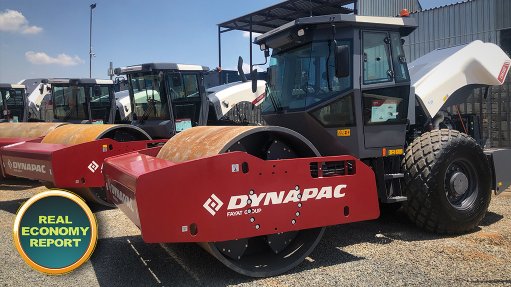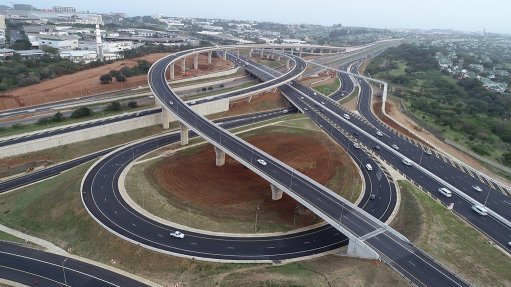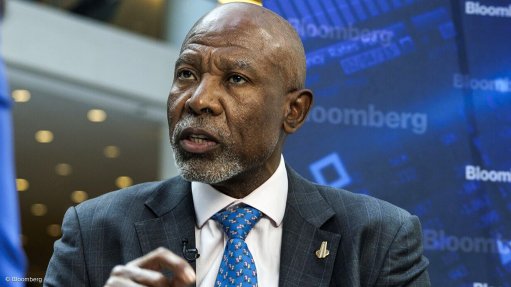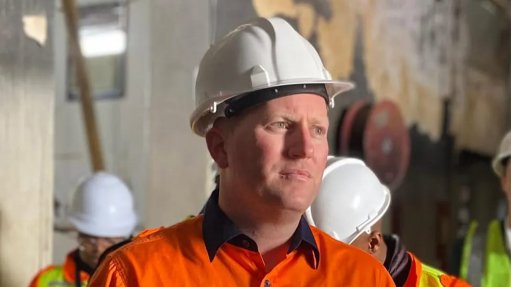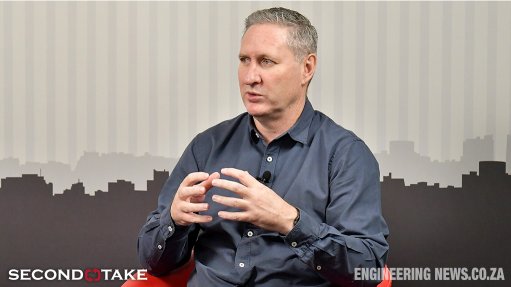South Africa must accelerate to NEV manufacturing to ensure it can sustain industry
There is still a lack of clarity about South Africa's investment drive to transform the automotive industry to make new energy vehicles (NEVs) and to prevent the industry from losing 80% of its vehicle and component manufacturing capacity to changing mobility technologies, Naamsa | the Automotive Business Council president and Ford Motor Company Africa president Neale Hill told delegates attending the South African Automotive Week on October 26.
The local automotive industry has requested an early review before the Automotive Master Plan's 2026 date, as the initial objectives are no longer realistic, such as the aim to increase vehicle production by 250% to 1.4-million units a year by 2035 from current levels.
This is unrealistic when considering the severe impact of Covid-19 and the current disruptions in the country, Hill said.
Vehicle sales are expected to take another year to recover to prepandemic levels and may take a year or two longer in other global regions to recover to these levels, he highlighted.
Further, globally, 51 countries have put in place timelines for phasing out the sale of internal combustion engine vehicles.
"Other African countries, including Egypt, Morocco and Rwanda, have proactively put policies in place to support their automotive industries. As part of a global industry, the domestic automotive industry cannot afford delays.
"Sadly, the decisions to manufacture next-generation models have been made by original-equipment manufacturers, and South Africa missed the opportunity, as policy clarity and timing are imperative considerations for international companies' head offices," Hill stated.
South Africa has remained at just over 0.5% of global automotive manufacturing volumes. The only way for South Africa to sustain and grow the industry is to stand out and attract NEV investments, he emphasised.
A key priority is that government must create a conducive environment that will enable the industry to attract investments in manufacturing and unlock the economic potential of the industry.
"South Africa is moving too slowly. The world is running, and South Africa is lagging farther behind, even without considering the energy and water crises," he says.
"It is becoming difficult for original-equipment manufacturers to convince their head offices to consider South Africa as an attractive destination, owing to the escalating duration and intensity of outages and deteriorating, costly and inefficient logistics infrastructure across the country," Hill added.
However, the automotive industry is collaborating to optimise its contribution to the country's economy, he noted.
"We need support from and continuing collaboration with government and unions to sustain and grow the automotive industry in South Africa and ensure that it continues to be the largest manufacturing sector in the country's economy. Manufacturing will be the future engine of growth in the global economy," he averred.
GLOBAL DISRUPTION
Meanwhile, automotive manufacturers and the automotive industry worldwide are experiencing significant disruptions and changes, International Organisation of Motor Vehicle Manufacturers (OICA) president John Bozzella told delegates attending the South African Auto Week.
"This is a period of great change in the automotive industry. Personal mobility is a force for good because it uplifts communities and families, and there is also the promise of and excitement around personal, zero-carbon electric propulsion. Automation and connected cars are changing use and ownership models. The industry is pushing boundaries, each of which promises cleaner, safer and smarter personal transport.
"These are tectonic and unprecedented shifts that will change personal mobility and the automotive industry in fundamental ways. These sweeping changes are driving hundreds of billions of dollars in capital investments," Bozzella said.
"Taken together, the transformations will reinforce and then accelerate each other and create a new 50-year industry cycle from the disruption and reinvention that will impact on workers, communities, economies and societies," he noted.
In recognition of the need to address the greenhouse-gas emissions of the transport sector, hundreds of billions of dollars have been invested in fostering cleaner vehicles, including advanced internal combustion engines, low-carbon fuels, electric vehicles and hydrogen fuel cell technologies, Bozzella added.
Further, in the global shift to electric vehicles (EVs) and electrification of propulsion, forecasts predict that EV investments will exceed $1-trillion by 2030.
"The EV market is still evolving and it will take many more years, but the transformation is picking up speed. Globally, we are sitting on the cusp of 20-million EVs on the road, up from one-million in 2016.
"EV car sales have doubled and we are seeing in the US that EV sales currently account for 7% of new vehicle sales," said Bozzella, who is also president and CEO of the US Alliance For Automotive Innovation.
Additionally, US automakers and suppliers have invested more than $75-billion to support EV manufacturing and associated supply chains.
"These changes require more attention from governments, in terms of policies and conditions to ensure that EV use grows and is sustainable, more attention from the industry to ensure it and its workforce can meet consumer demand, and more attention on greening the electricity grid," Bozzella said.
The challenge is how the industry can realise the potential of innovative technologies while producing affordable vehicles and how it can undertake the transition without leaving anyone behind and ensure that cutting edge technologies reach all communities.
Automakers had set ambitious goals to combat carbon emissions from the industry, and were incubating technologies to reduce crashes and congestion, as well as expand access to mobility, Bozzella noted.
"The automotive industry must collaborate with governments and they need to redouble their focus on policies and push public-private partnership cooperation. This will be critical in the years ahead.
"The industry's collective success has never been so closely tied to engagement with other sectors of the economy and across government. The future of the industry depends on all stakeholders, policy makers, businesses and consumers driving to the same destination and thereby changing the way the world drives," he concluded.
Comments
Press Office
Announcements
What's On
Subscribe to improve your user experience...
Option 1 (equivalent of R125 a month):
Receive a weekly copy of Creamer Media's Engineering News & Mining Weekly magazine
(print copy for those in South Africa and e-magazine for those outside of South Africa)
Receive daily email newsletters
Access to full search results
Access archive of magazine back copies
Access to Projects in Progress
Access to ONE Research Report of your choice in PDF format
Option 2 (equivalent of R375 a month):
All benefits from Option 1
PLUS
Access to Creamer Media's Research Channel Africa for ALL Research Reports, in PDF format, on various industrial and mining sectors
including Electricity; Water; Energy Transition; Hydrogen; Roads, Rail and Ports; Coal; Gold; Platinum; Battery Metals; etc.
Already a subscriber?
Forgotten your password?
Receive weekly copy of Creamer Media's Engineering News & Mining Weekly magazine (print copy for those in South Africa and e-magazine for those outside of South Africa)
➕
Recieve daily email newsletters
➕
Access to full search results
➕
Access archive of magazine back copies
➕
Access to Projects in Progress
➕
Access to ONE Research Report of your choice in PDF format
RESEARCH CHANNEL AFRICA
R4500 (equivalent of R375 a month)
SUBSCRIBEAll benefits from Option 1
➕
Access to Creamer Media's Research Channel Africa for ALL Research Reports on various industrial and mining sectors, in PDF format, including on:
Electricity
➕
Water
➕
Energy Transition
➕
Hydrogen
➕
Roads, Rail and Ports
➕
Coal
➕
Gold
➕
Platinum
➕
Battery Metals
➕
etc.
Receive all benefits from Option 1 or Option 2 delivered to numerous people at your company
➕
Multiple User names and Passwords for simultaneous log-ins
➕
Intranet integration access to all in your organisation






